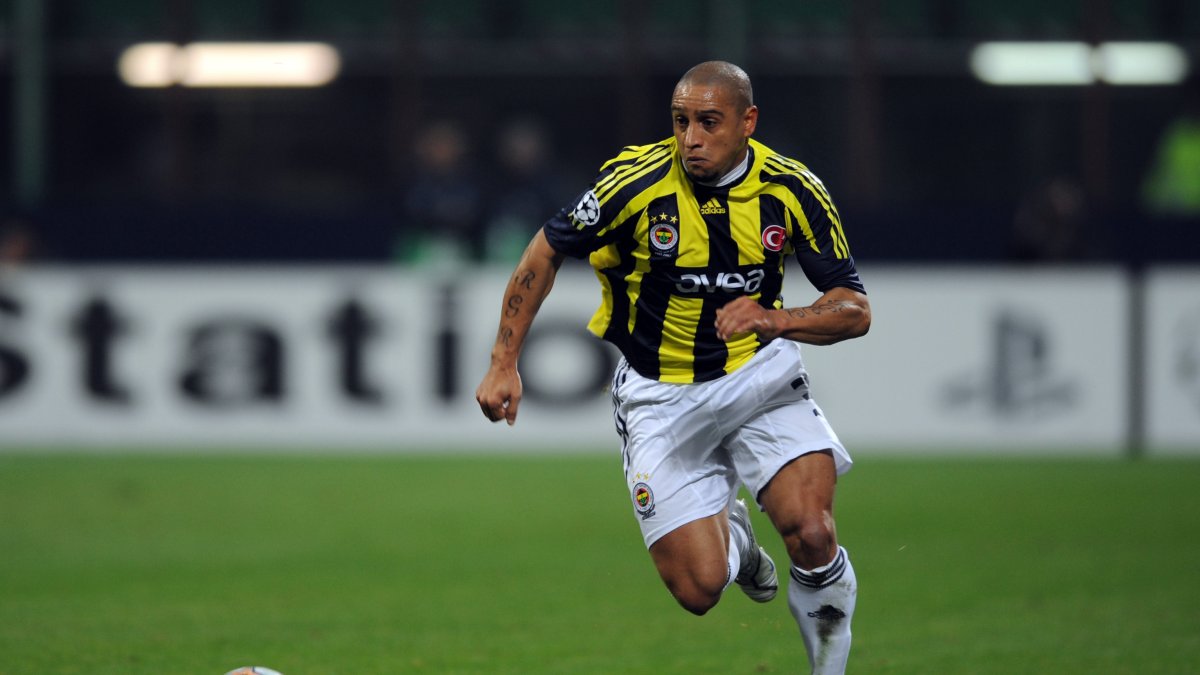In Zimbabwe, there’s a saying: “Moto wemapepa,” which simply translates to “paper flames.”
They blaze fast, burn bright and die out before the firewood even catches.
Turkish football, particularly the Süper Lig, has become the embodiment of that proverb – short-lived sparks of excitement, fleeting flashes of promise and a chronic addiction to big names without long-term thinking.
Few leagues have embraced this kind of short-termism quite like Türkiye’s top flight.
Even before the recent influx of aging European stars, Türkiye had already rolled out the red carpet for some of football’s biggest names – most arriving at the twilight of their careers, with grand promises and equally grand exits.
Disposable flashy signings
Roberto Carlos’ move to Fenerbahçe in 2007 was a bombshell.
The Brazilian legend was still a global icon, and his arrival was met with hysteria.
Fans chanted his name. Media cameras followed his every step.
While he had moments of quality, his two-year stay didn’t shift the club’s European fortunes or establish a new era.
His legacy was mostly symbolic – a show of ambition, not a strategy.
Didier Drogba came to Galatasaray in 2013, fresh off Champions League glory with Chelsea.
In just 18 months, he helped Galatasaray win a league title and reach the Champions League quarterfinals. His experience was invaluable, his goals timely – but like most marquee arrivals in Türkiye, his stint was brief.
No system was built around him. No long-term plan followed.
Robin van Persie, the former Arsenal and Manchester United striker, arrived at Fenerbahçe in 2015 amid fireworks, promises and packed stadiums.
But the Dutchman, plagued by injuries and inconsistent form, never fully delivered on the hype.
His frustrations with management were often visible. Despite scoring 22 goals in his first season, Fenerbahçe still fell short in both the league and Europe. Three years later, he was gone – another name added to the club’s scrapbook of “what could have been.”
Now, Jose Mourinho stands at the heart of Turkish football’s latest firestorm.
Appointed as Fenerbahçe’s head coach in June 2024, his arrival triggered wild celebrations. Thousands of fans mobbed the airport. The club released cinematic unveiling videos. A serial winner had finally arrived – and with him, the dream of glory.
But even before a ball was kicked, questions loomed: Would Mourinho stay beyond one season? Would the club adapt to his rigid methods? Would this be a sustainable project or just another flash in the pan?
The pattern is clear. The Süper Lig repeatedly turns to big names in moments of crisis or desperation – believing that a splashy signing will buy time, boost morale and silence critics. It’s the same cycle.
Mesut Özil’s signing by Fenerbahçe in 2021 was framed as a fairytale. The legendary playmaker was coming home.
But within a year, his fairytale ended with him being sidelined, exiled and eventually released. Behind-the-scenes drama eclipsed anything he offered on the pitch.
Mario Balotelli, Dries Mertens, Mauro Icardi, Victor Osimhen, Wilfried Zaha and Hakim Ziyech all followed similar trajectories: brief moments of brilliance surrounded by inconsistency, injuries or tactical misfits. Each came with global recognition. Each left – or is likely to leave – without reshaping the team or contributing to a larger vision.
Behind these glamorous moves lies a troubling truth: Turkish clubs often lack continuity. Managers are disposable. Youth systems are underfunded. Transfers are dictated more by hype than need. Aging stars are preferred over nurturing new talent.
Financially, it’s a bleeding wound. The “Big Four” – Galatasaray, Fenerbahçe, Beşiktaş and Trabzonspor – carry a combined debt exceeding 1.14 billion euros ($1.3 billion).
And yet, summer after summer, they chase high-profile names and short-term fixes. Their obsession with today ignores tomorrow.
This results in domestic titles that fail to build dynasties.
European campaigns that collapse before the group stages.
Promising local talents like Arda Güler are snatched away before they mature.
Players like Barış Alper Yılmaz show promise, but often play under the shadow of expensive, fading imports.
There are glimpses of change. Trabzonspor’s 2022 title came from a balanced project rather than star power.
Galatasaray’s integration of young Turkish players has been more consistent under Okan Buruk. But they remain exceptions.
Until Turkish football sheds its love affair with paper flames – signings that burn bright but burn out – the Süper Lig will keep circling the same loop: grand arrivals, brief highs, no legacy.
And the embers of another forgotten superstar will flicker out in the Istanbul night.
Content Source: www.dailysabah.com

